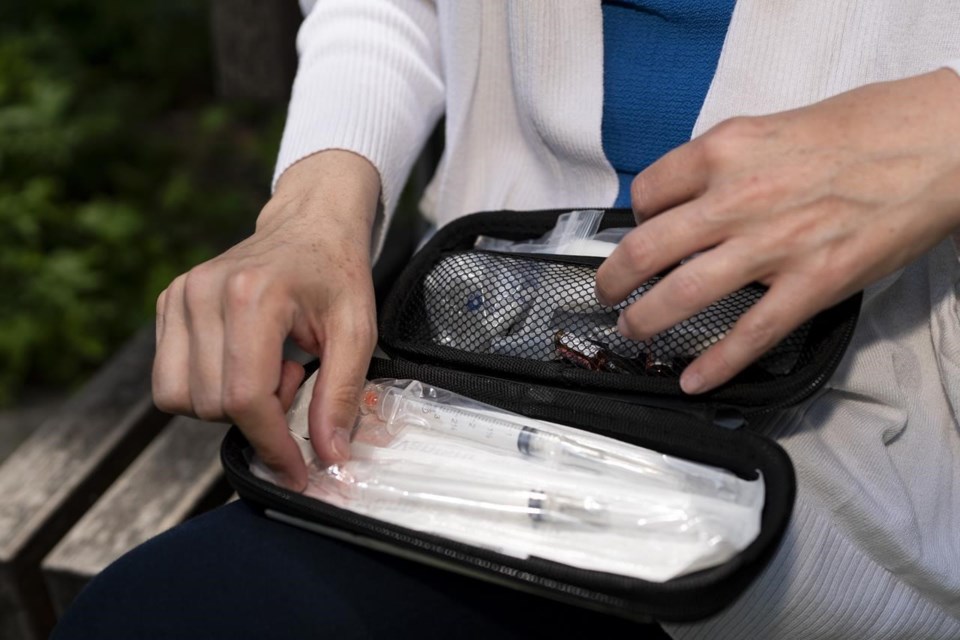ST. JOHN'S, N.L. — Addiction and recovery specialists in Newfoundland and Labrador are calling for supervised drug-consumption sites as the province faces soaring rates of deaths from toxic cocaine.
Jeff Bourne, executive director of the U-Turn recovery centre in Carbonear, N.L., says people need safe places to consume drugs and clean, safe tools to use. And while health officials say more research is needed, Bourne says help is needed now.
"We need something ASAP, right?" he said in a recent interview. "You're going to have people all up in arms if you open a safe consumption site. But they'll move on to something else. So take the slack for a week or so, and give'er."
Eighteen people are believed to have died this year because of a toxic cocaine supply, the province's chief medical examiner's office said Thursday in an email. Seven deaths have been confirmed, while another 11 deaths — which occurred between June 23 and July 23 — are presumed positive and awaiting confirmation.
By comparison, the office confirmed 18 cocaine-related toxicity deaths in all of 2022, the email said.
Last month, the Royal Newfoundland Constabulary issued a press release warning that cocaine contaminated with fentanyl was circulating. Cocaine can be snorted, smoked or injected.
The deaths are concerning, said Wayne Bishop, program manager for the N.L. Centre on Substance Use, which is run by the province's health authority. The centre completed a report about two and half years ago analyzing whether there was a need in the greater St. John's area for a safe consumption site or overdose prevention site, he said in an interview.
"There's been numerous conversations, but we haven't moved forward," Bishop said.
Safe consumption sites and overdose prevention sites both provide people with a clean place where they can consume drugs in the presence of staff who are trained to deal with overdoses. The province currently has neither. Facilities in other provinces are equipped to test whether drugs are contaminated with lethal substances, like fentanyl. They also often offer sterile supplies, including clean syringes, and help people who use other consumption methods.
Though the terms are frequently used interchangeably, safe consumption sites are operated through a federal exemption to the Criminal Code, under the Controlled Drugs and Substances Act. Overdose prevention sites, however, operate through an exemption triggered by a provincial minister, typically because of a "public overdose emergency," Bishop said.
However, Bishop said he feels another needs assessment should be done before any site is established since the province's drug supply seems to have changed.
"We do really need to rethink the need for this type of service," he said. "And not just the need, but what would the service look like, what does it need to look like to maximize individuals' ability to use that site."
Like Bourne, Keith Fitzpatrick says drug users need help now.
"I think we've had enough reports," Fitzpatrick, who advocates for drug users and those in recovery, said in a recent interview. "We seem to keep doing these reports and nothing actually concrete happens."
Fitzpatrick, who was addicted to opioids for two decades, said addiction has long been an issue in the province, but discussions among authorities have never resulted in concrete measures to address the problem.
"The health authorities are not talking to people with lived experience," he said. "If you were talking to anybody in metro St. John's years ago, they would have told you that (the drug supply) is already changing … everybody saw this coming."
Safe injection sites and access to safe supplies could keep someone alive long enough that they decide to seek help for their addiction, Fitzpatrick said. That's a positive, but it highlights another crucial problem he sees in Newfoundland and Labrador: there are long waiting lists for detox and rehabilitation centres and few spots, he said.
In Labrador, where Fitzpatrick lives, there are no detox or rehabilitation facilities, he said, adding that people there have to foot the bill to fly to St. John's for treatment options. The only operating rehabilitation centres open to all adults in the province are in Corner Brook, on the west side of Newfoundland, and in Harbour Grace, which is about an hour-long drive west from St. John's.
"We need safe injection sites, safe supplies. We also need easier access for someone who wants to go to get help today," he said. "There's a major problem. It's easier to get drugs than it is to (get) help."
This report by The Canadian Press was first published Aug. 25, 2023.
Sarah Smellie, The Canadian Press




